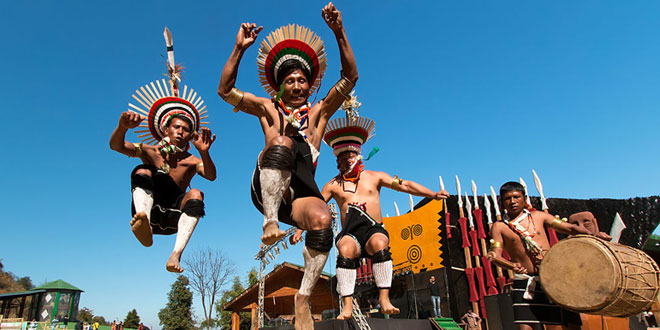Question: How did the powers of tribal chiefs change under colonial rule?
Answer: The powers of Tribal chiefs change under the colonial rules as under:
- The British extended their control over all forests and declared that forest was a state property.
- Some forests were classified as reserved forest for producing the timber.
- In reserved forests tribal people were not allowed to move freely and not allowed to practice jhum cultivation, or collect fruits or hunt animals. In such circumstances to earn livelihood became very difficult for tribals.
- Many tribal people were forced to move to other areas in search of work and livelihood.
- As the Britishers felt shortage of labourers to cut trees for railway sleepers, to transport logs, they modified their decision. The Britishers decided that they would give Jhum cultivation a small patches of land on the condition that they would live in the villages and would provide labour to the forest department of the government.
- The forest department established forest villages to ensure a regular supply of cheap labour.
Question: What accounts for the anger of the tribals against the dikus?
Answer: The word “dikus” means outsiders. Dikus were the people who made the tribal people dependent upon them, thereby causing them a lot of misery and suffering. These outsiders were composed of traders and moneylenders who would come into the forests to sell the goods not produced within the forest, buy forest produce and offer cash loans. Often these loans came at the price of very high rates of interest. These loans ultimately forced the tribal into a vicious cycle of debt and poverty. The traders would buy goods from the tribal at very low rates and sell the same products at high prices, thereby making huge profits. For these reasons, the tribal considered the trader and the moneylender figures to be their main enemies; hence, they referred to them as the evil outsiders.
The colonial government too was looked upon as an external evil force that sought to destroy their livelihoods and their familiar ways of life. The British alienated the tribal by forcing shifting cultivators to practice settled cultivation; implementing forest laws to prevent their access to the forest land and the forest produce; demeaning the power and authority of tribal chiefs, and demanding tributes. As a result, there was considerable anger towards the British as well.
Question: What was Birsa’s vision of a golden age? Why do you think such a vision appealed to the people of the region?
Answer: Birsa talked about a golden age, a satyug, an age of truth in which, like in the past, the tribal people would live a good life, construct embankments, tap natural springs, plant trees and orchards and practice cultivation to earn their living. He talked of an age in which the tribal would not kill one another and would live an honest life. His golden age consisted of a reformed tribal society in which there was no place for vices like liquor, uncleanliness, witchcraft and sorcery, and outside forces like the missionaries, Hindu landlords, moneylenders, traders and the Europeans.
This vision was appealing to the tribal people as all the vices and outside forces that Birsa talked about were indeed thought of by everyone as the root causes of their misery and suffering.
 Class Notes NCERT Solutions for CBSE Students
Class Notes NCERT Solutions for CBSE Students



Thank you for helping it made my worksheet easy!
THANK YOU….
Thanks for the answers this made my home assignment easy.